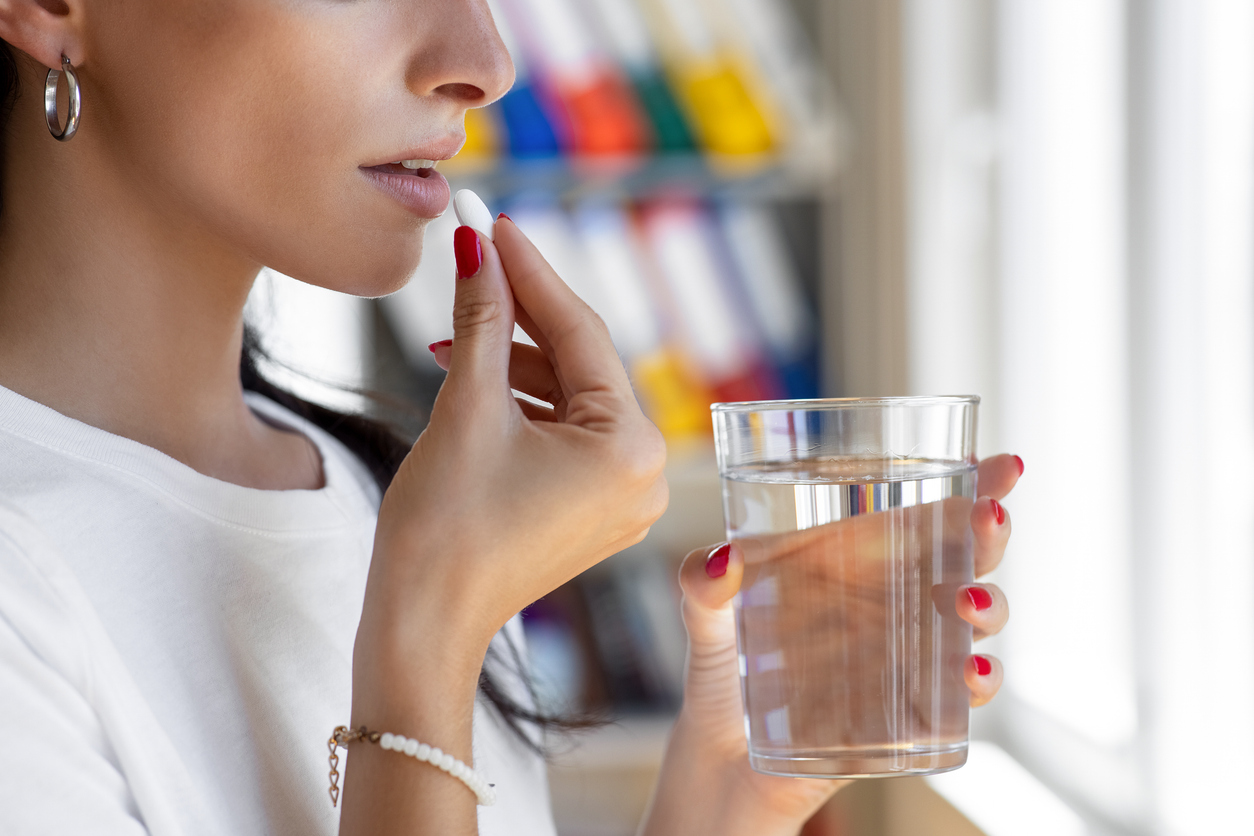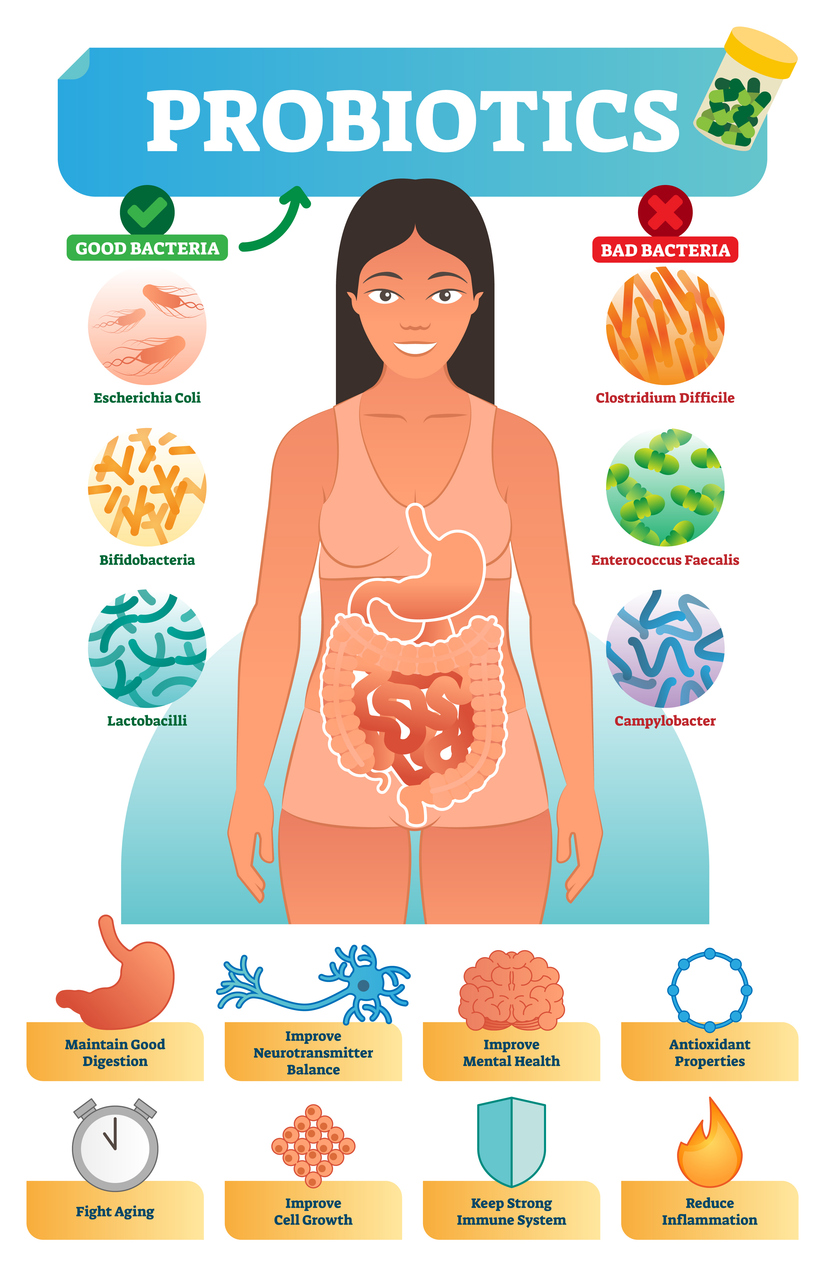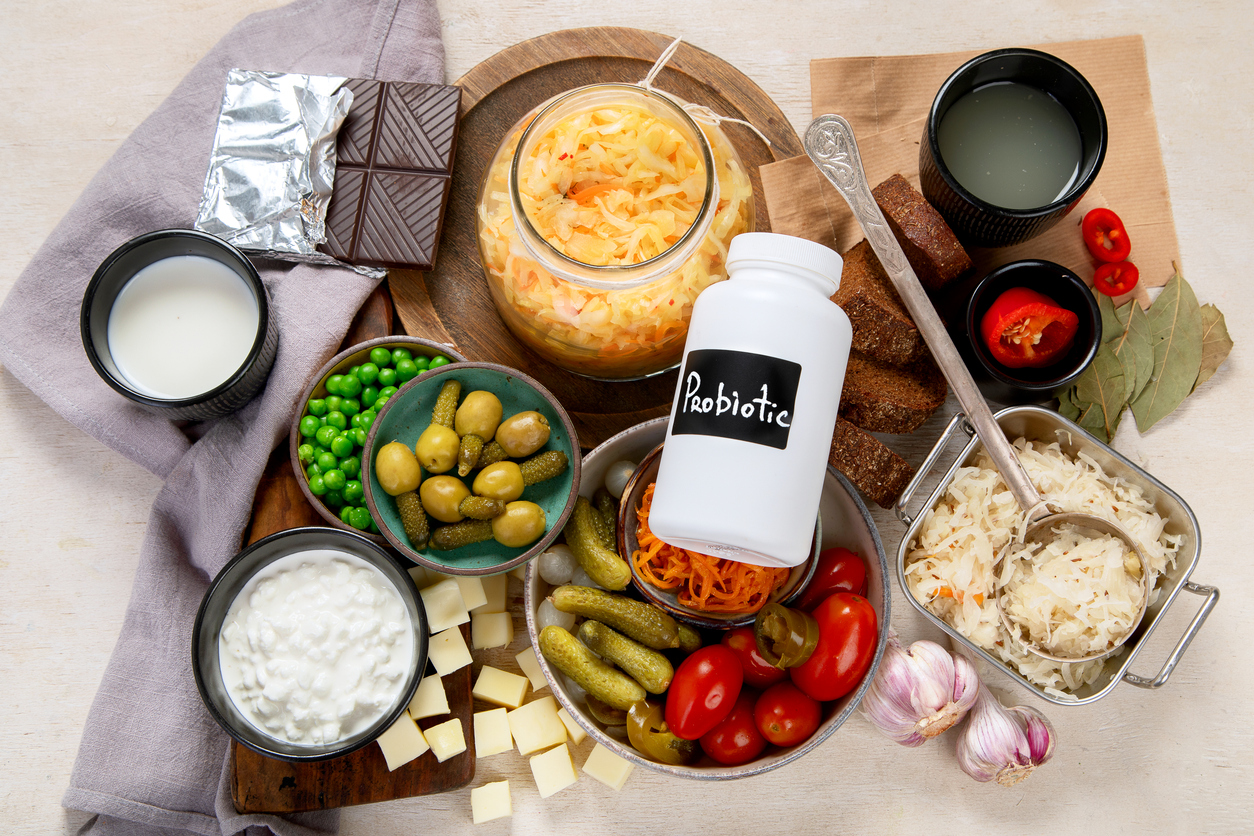
Healing Your Gut After Antibiotics: Steps for Restoring Balance
Antibiotics help treat bacterial infections. However, they can upset the balance of gut bacteria. Antibiotics fight harmful bacteria but can also harm the good bacteria that help digestion. This imbalance can cause discomfort. You might experience bloating, diarrhea, or long-term digestive problems. Fortunately, there are steps you can take to restore your gut health after a course of antibiotics.
Why Your Gut is Off-Balanced After Taking Antibiotics
Antibiotics are powerful medications that target harmful bacteria causing infections but don’t distinguish between good and bad bacteria. As a result, they can disrupt the delicate balance of your gut microbiome, which is made up of trillions of beneficial bacteria that help with digestion and immune function. When you take antibiotics, they kill off harmful bacteria and can also wipe out beneficial bacteria that are essential for your gut’s health. This imbalance can lead to symptoms like bloating, gas, diarrhea, and even yeast overgrowth. The disruption can leave your gut more vulnerable, making it harder to maintain proper digestion and overall well-being.

How to Support Your Gut While on Antibiotics
Antibiotics can be necessary, but you can protect your gut health during treatment in specific ways. First, team up with your doctor. Make sure you’re using the right antibiotic. Broad-spectrum antibiotics can upset your gut microbiome. A more specific option might cause less disruption. You could try shorter treatment times if your doctor says it’s okay. This can help reduce the long-term effects on your gut bacteria.
Spacing your antibiotic doses consistently and taking them simultaneously daily helps your body adjust. This can also reduce side effects. Prioritizing sleep and managing stress is important. Poor sleep and high stress can hurt gut function and slow recovery. Remember any other medications you are using, such as antacids or laxatives. These can worsen gut imbalance when taken with antibiotics.
5 Ways to Heal Your Gut After Antibiotics
Antibiotics are crucial for fighting infections. However, they can upset your gut microbiome, harming digestion and overall health. Here are five effective ways to help restore your gut health after taking antibiotics.
- Probiotics
Probiotics are beneficial bacteria that help restore the balance of your gut microbiome. After taking antibiotics, replenishing these good bacteria can help improve digestion and support immune health. You can either take probiotic supplements or eat foods high in probiotics. These include yogurt, kefir, sauerkraut, and kimchi. Look for probiotics with a variety of strains, as different strains support different areas of gut health.
- Eat Prebiotic Foods
Prebiotics are plant fibers that feed the good bacteria in your gut. These foods help promote the growth of beneficial microbes, restoring balance after antibiotic use. Add garlic, onions, bananas, asparagus, and whole grains into your diet. These prebiotics work synergistically with probiotics to support long-term gut health.
- Stay Hydrated
Proper hydration is essential for digestive health. Antibiotics can cause dehydration, especially if they lead to diarrhea or other stomach issues. Drinking enough water helps flush toxins from your body and supports digestion, making it easier for your gut to restore balance. Aim for at least eight 8-ounce glasses of water daily or more if you’re experiencing symptoms like diarrhea.
- Limit Processed Foods and Sugar
After antibiotics, focusing on a nutrient-dense diet is essential to support gut healing. Processed foods and sugary diets can help harmful bacteria and yeast grow. This makes it harder for your microbiome to recover. Instead, focus on whole foods like fruits, vegetables, lean proteins, and healthy fats to nourish your body and gut. Cutting back on sugar can help stop Candida growth. This yeast thrives when the gut balance is off.
- Consider Bone Broth and Gut-Healing Supplements
Bone broth is rich in collagen, amino acids, and gelatin, all of which help repair gut lining and support overall digestion. Bone broth can calm an upset stomach and supply key nutrients for gut health. Also, L-glutamine is a helpful amino acid. It can heal the gut lining and boost digestion after taking antibiotics. Before adding supplements to your routine, it’s always a good idea to consult your doctor.

Restoring Gut Balance: Foods to Embrace and Eliminate
Supporting your gut with the right foods can speed up recovery after antibiotic use. Here’s what to include in your diet and what to avoid:
Best Foods for Gut Recovery
- Fermented Foods: Yogurt, kefir, sauerkraut, kimchi, miso, and kombucha contain probiotics that help replenish beneficial bacteria.
- Fiber-Rich Vegetables: Leafy greens, carrots, asparagus, and artichokes provide prebiotics, which feed healthy gut bacteria.
- Omega-3 Fatty Acids: Salmon, flaxseeds, chia seeds, and walnuts help reduce inflammation and support gut lining repair.
- Bone Broth: Rich in collagen and amino acids, bone broth helps soothe and heal the gut lining.
- Polyphenol-Rich Foods: Berries, green tea, dark chocolate, and olives promote gut bacterial diversity and reduce inflammation.
Worst Foods for Gut Recovery
- Artificial Sweeteners: Found in diet sodas and sugar-free products, artificial sweeteners can disrupt gut bacteria and increase bloating.
- Processed Foods: Chips, fast food, and packaged snacks contain preservatives and additives that can harm beneficial bacteria.
- Refined Sugars: Excess sugar in candies, sodas, and pastries can promote the growth of harmful bacteria and yeast overgrowth.
- Alcohol: Beer, wine, and liquor can irritate the gut lining and reduce bacterial diversity.
- Fried and Greasy Foods: Heavy, fried foods can slow digestion and contribute to gut inflammation.

How Long Does It Take to Restore Gut Health?
Restoring gut health after antibiotics takes different times for everyone. It depends on factors like the type of antibiotic, how long the treatment lasts, diet, and lifestyle choices. Some people might start feeling better in a few weeks. They can do this by eating healthy foods, taking probiotics, and drinking enough water. For some people, especially those who have used multiple rounds of antibiotics or strong broad-spectrum ones, gut recovery may take several months. Gut bacteria diversity is vital for gut health. Eating fiber-rich foods, fermented foods, and prebiotics can help boost beneficial bacteria quickly.
Stress management, regular exercise, and adequate sleep contribute to a faster and more complete recovery. While there’s no set timeline, being mindful of your gut health daily can promote a smoother and more efficient healing process.
Contact Us
Restoring gut health after antibiotics takes time and effort. With the right approach, you can help your digestive system regain balance. Adding probiotics and prebiotic foods, staying hydrated, and getting gut-friendly nutrients can help your microbiome and boost your overall health.
At Gastroenterology of Greater Orlando, we are dedicated to helping patients restore gut balance and support long-term digestive health. Schedule a consultation today to take the next step toward better wellness.